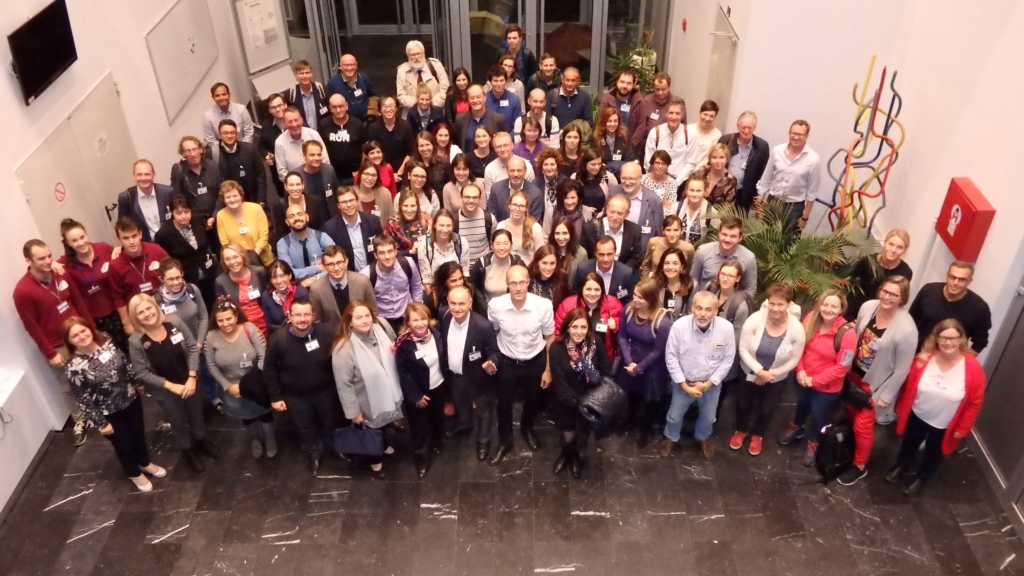How can we adequately feed a growing global population using agricultural practices that are environment-friendly, cost-effective, and also enable us to mitigate climate change and biodiversity loss? Research into the breeding of new resilient, nutritious and high-yielding plants is a key element and a very important part of that is the recent development of genome editing techniques, such as CRISPR/Cas9 (an acronym for clustered regularly interspaced short palindromic repeats), that allow an unprecedented level of precision in controlling plant genetic material and corresponding traits.
The COST Action Genome editing in plants – a technology with transformative potential (PlantEd) brought together experts from 38 European countries and a further 13 countries beyond Europe, representing a range of disciplines, all with a focus on plant genome editing.
Watch genome editing explained in simple terms and how it can make a difference in the Action videos:
“We wanted to cover all aspects of genome editing in plants,” explains Associate Professor Dennis Eriksson of the Swedish University of Agricultural Sciences. “My motivation to organise this followed my time working in Brussels with EPSO, the European Plant Science Organisation. I saw a need to bring different groups together, to share experiences and to tackle some misconceptions about the technology.”
The Action was very timely as CRISPR/Cas9 was moving gene editing technology to the next level. “The technology was Science’s breakthrough of the year for 2015,” says Dennis. “And this coincided with my time in Brussels.”
Dennis particularly remembers the four annual conferences organised during the Action. “They were amazing,” he says. “Bringing everyone together to thoroughly discuss the technology from all different angles from technical challenges to environmental impact and the impact on breeding processes – people were just so enthusiastic. I believe that the conferences were very important for the entire community working on genome editing in plants.”


PlantEd was able to contribute to policy consultations including the European Food Safety Authority (EFSA) call on the safety assessment of plants developed using the new genomic techniques (NGTs), the European Commission consultation on the Farm to Fork strategy as part of the Green Deal, and the European Commission proposal on new legislation for plants derived from certain NGTs.

The finale of PlantEd was the production of an Open Access book entitled ‘Roadmap for Plant Genome Editing’. The 34-chapter book describes genome editing techniques for crop improvement and their applications in a range of annual and perennial crops. It also covers public perception of the technology and its regulation in the EU and beyond. “This was a real ‘wow’ moment for all of us. The book was one and a half years in preparation,” says Dennis. “A preprint was available at the end of the Action and the book itself was released in December 2023. It was a fantastic collaboration. With 75,000 downloads so far, it has an impact way beyond PlantEd itself.”
“It was a fantastic collaboration”
Prof. Dennis Eriksson, Chair of PlantEd Action
Evolution of PlantEd
The work started in PlantEd is continuing and evolving with Dennis now the coordinator of two Horizon Europe projects. “Project GeneBEcon has been running since 2022 and focuses on fine-tuning the technology and applying it in potato and microalgae. We are also investigating the regulatory, economic and social aspects of genome editing” says Dennis. “And a new project – DETECTIVE – has just started in January 2024 that is developing detection methods for genome-edited products. This is very valuable research that is of great interest to many people including regulatory authorities. Both projects apply the Responsible Research and Innovation Roadmap©™ to engage stakeholders in the work.”
“PlantEd has had a significant impact on my career,” he continues. “Coordinating a COST Action and two Horizon Europe projects have really helped me to develop my leadership skills and I have got an extensive insight into many different research areas and disciplines! And I have to thank COST for that.”
And the COST network itself is also continuing as a Specialist group within the Association for Applied Biologists (AAB) – a UK-based, international association. “Thanks to Geraint Parry and the team at AAB we are planning for a 5th PlantEd annual conference, now without COST funding, and we are considering how we could fund more STSMs and other activities,” says Dennis. “Supporting young researchers was very important for the Action. We organised 35 STSMs that led to papers and further collaborations and we ran seven Training Schools. Four of the Training Schools were technical and had a fantastic impact helping the participants to get hands-on experience of the new techniques in the lab.”


